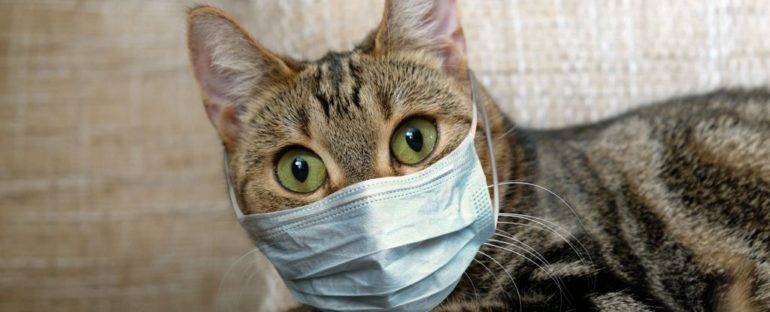The research into better understanding SARS-CoV-2 goes on, and a new study sheds some light on how likely our household pets are to get infected – specifically, finding that cats are more susceptible than dogs to the virus that causes COVID-19.
Scientists analyzed blood serum from a total of 239 pet cats and 510 pet dogs, collected between mid-April and mid-June of 2020, to look for antibodies that would indicate a previous infection of SARS-CoV-2.
The results showed that 8 percent of cats but fewer than 1 percent of dogs had contracted COVID-19, suggesting that the virus can be passed between species, and that cats are more likely to end up catching it and getting infected than dogs are.
“Because companion animals can be the source of a range of infectious diseases, determining how susceptible the two most popular pet species in the United States are to SARS-CoV-2 – and how prevalent the disease may be among them – could have significant impacts for both human and animal health,” says molecular biologist Hinh Ly from the University of Minnesota.
The findings are just part of a bigger picture that researchers are starting to put together when it comes to animals and COVID-19. While we know pets can become infected with SARS-CoV-2, the likelihood of them becoming sick appears to be low.
“I am still a bit surprised that cats are so readily infected and yet rarely exhibit any signs of illness,” biomedical researcher Angela Bosco-Lauth from Colorado State University, who wasn’t involved in the new study, told the New York Times.
It also seems unlikely that animals are able to pass on SARS-CoV-2 to human beings; on the other hand, we can probably give the virus to our pets when we’re in close proximity to them – so cuddling your cat or dog when you’re faring poorly with COVID-19 isn’t a good idea.
In this new study, the researchers weren’t able to look in detail at why cats might be more susceptible to infection than dogs. The ACE2 protein in cats – which is more similar to the human ACE2 protein than the dog equivalent – acts as a receptor for coronavirus and could be one reason.
The blood serum used in this study was collected anonymously, so the researchers weren’t able to look at factors, such as whether the animals lived mostly outdoors or indoors, or whether there was evidence of transmission between pets.
The team is currently working on a follow-up study covering the latter months of 2020, when the number of human COVID-19 cases in the area was much higher. That should give us more useful data into just how the SARS-CoV-2 can spread, and how it might be better contained in the future.
“The results will help clarify the prevalence of cross-species transmission of this coronavirus among pets and their owners,” says molecular virologist Yuying Liang, from the University of Minnesota.
The research has been published in Virulence.



